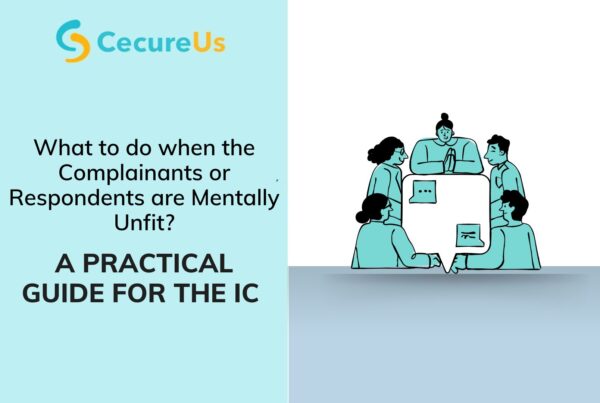
Parenting is a difficult and varied job that can vary widely depending on socioeconomic, cultural, and personal circumstances. Promoting children’s growth and development into responsible, independent adults, entails giving them emotional, physical, and intellectual support is a vital responsibility of parents. While adjusting to a demanding sleep and feeding schedule, many parents experience exhaustion. In India, parents assist their children with their education on average for roughly 12 hours every week. Indian parents care a lot about how they are perceived in society. They dislike it when family matters are discussed in public with strangers. Many children neglect to tell their parents or other people about any terrible experiences they have in the family as a result of this antiquated thinking.
Tips for raising a teenage /adolescents
Body shame challenges:
In the olden days, children had given less attention to sensitive comments in the past, but in the present, they are sensitive and immediate respondents. Hearing “NO” is unusual for them. Parents must foster in their children the ability to accept failure and consider what comes next. Even though grades are important, life skills that enable children to adapt to any situation should also be prioritized. Promoting a positive body image and self-esteem is crucial in helping children who struggle with body shame. Fostering open communication, controlling peer pressure, knowing the difference between need and want, and knowing how to respond to bullying are all important.
It’s essential to establish a caring and understanding environment for children, where they feel accepted and valued for who they are rather than how they look.
Parent’s role:
Spend daily time with the child and teach them how to handle failure. Share the success stories and the solutions that helped them overcome their challenges. As a parent, you have a big responsibility to play in setting an example for your children, so try to keep any negative conversations and discussions to yourself when they are around. Instil optimism in the child and motivate them to express their creativity.
Avoid constant observation and help them become strong. As a result of spending time together, parents and children will have a strong bond that will enable them to openly discuss any difficulties.
- Building a healthy atmosphere:
Instead of eliminating all screen time for the child, set limits. Make it a point to sit together when eating enhances good habits. Children should be taught by their parents that remarks made on social media are unimportant and to disregard them. While social media can have both beneficial and detrimental consequences, it’s crucial to understand how it may affect young people’s mental health.
- Protect children from developing a drug or alcohol addiction.
Young individuals can become addicted to drugs or alcohol. By using a combination of education, communication, and supportive environments awareness can be created. Youngsters treat the repercussions as a matter of style, thus parents and instructors must make it a priority to inform youngsters about them. The effects of drugs on the mind and body should be made clear to the children. The chances of developing drug or alcohol addiction can be decreased by establishing a foundation of trust, communication, and good coping mechanisms. Children can form stronger bonds with their parents by
- Having open lines of communication with them
- Listening to them
- Setting an example
- Non Judgemental
- Improve children’s emotional, social, and IQ levels
Through a combination of instruction, practice, and support, children can improve their levels of emotional, social, and IQ (intelligence quotient).
- The ability to comprehend, manage, and navigate one’s own emotions as well as the emotions of others is referred to as emotional intelligence. They can improve their emotional intelligence by becoming more self-aware, becoming more optimistic, and empathizing with others.
- Understanding social dynamics, communicating successfully with others, and fostering positive connections are all aspects of social intelligence.
- Cognitive intelligence and problem-solving skills are referred to as IQ. Even though intelligence has a genetic component, there are numerous ways to develop and raise it.
Children grow and develop at their own rates, so it’s important to give them a compassionate and accepting atmosphere that lets them discover, learn, and develop in their special ways. To ensure that they develop emotionally, socially, and cognitively to their maximum potential, acknowledge their accomplishments and encourage them as they face difficulties.
- Gadget Addiction
Instead of imposing tight rules, engage your kid in conversations about safe technology use to help them gain self-control. Keep in mind that it’s essential to tackle the situation with empathy and compassion.
Thirteen-year-old Sandeep developed the habit of playing video games, eventually becoming addicted and logging three to four hours a day. As the days went by, his parents became aware that he was missing school, playing video games, and was finding it difficult to focus on his academics. He developed a mentality of aggressiveness when his parents attempted to stop him from playing. It was finally necessary to transport him to the de-addiction facility. In our digital age, teen gadget addiction is a serious worry. Parents are essential in controlling and reducing this problem. Here are some tips that can help manage gadget addiction. Here are some tips that can assist a parent to focus on.
- Set Limits
- Lead by Example
- Create Tech-Free Zones
- Educate on Digital Well-being
- Encourage in Open Communication
- Provide Alternatives
- Use Parental Controls
- Be a Role Model for Healthy Habits
Here are some key aspects of parenting:
Parenting requires a lot of discipline, communication, setting a good example, offering emotional support, and creating a loving environment. Because every child is different and parenting is a dynamic adventure, a customized approach is necessary. Effective parenting requires a strong commitment to lifelong learning, sensitivity, and flexibility.
- Love and Emotional Support
- Discipline and Boundaries
- Open Communication
- Listening skills
- Being a role model
- Make them aware of their safety
- Time and attention
- Adaptability
- Support system
To manage the skill of parenting reach out to us at wellness@cecureus.com, 1800 121 9497, www.eap.cecureus.com
For more blogs and articles, visit our official website. Contact us for workshops and queries related to POSH, EAP (Employee Assistance Program,) and Diversity and Inclusion.




